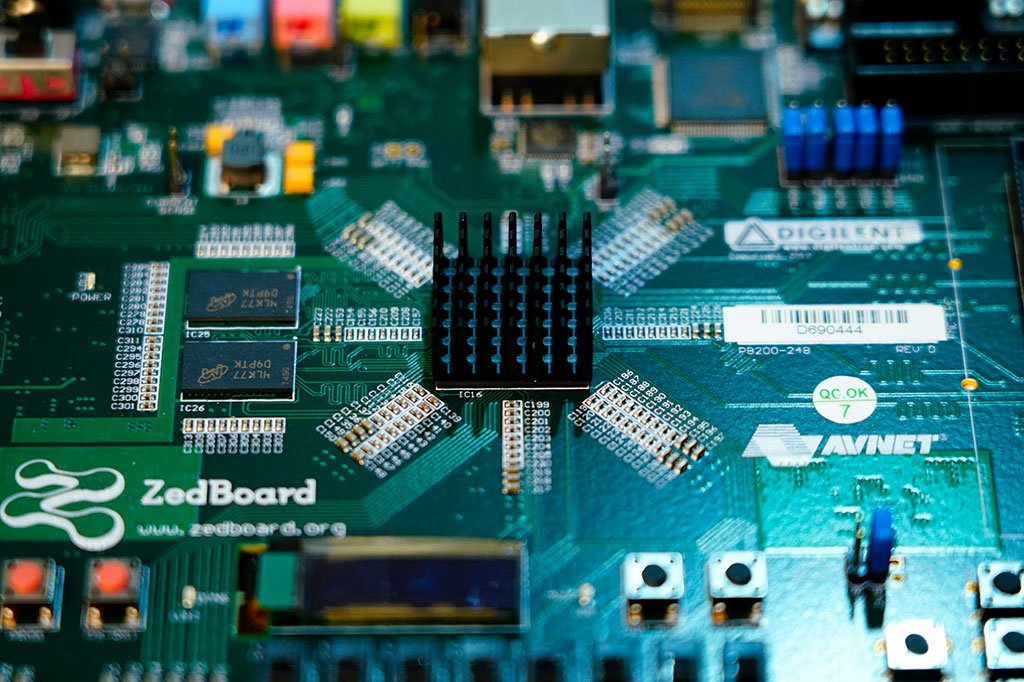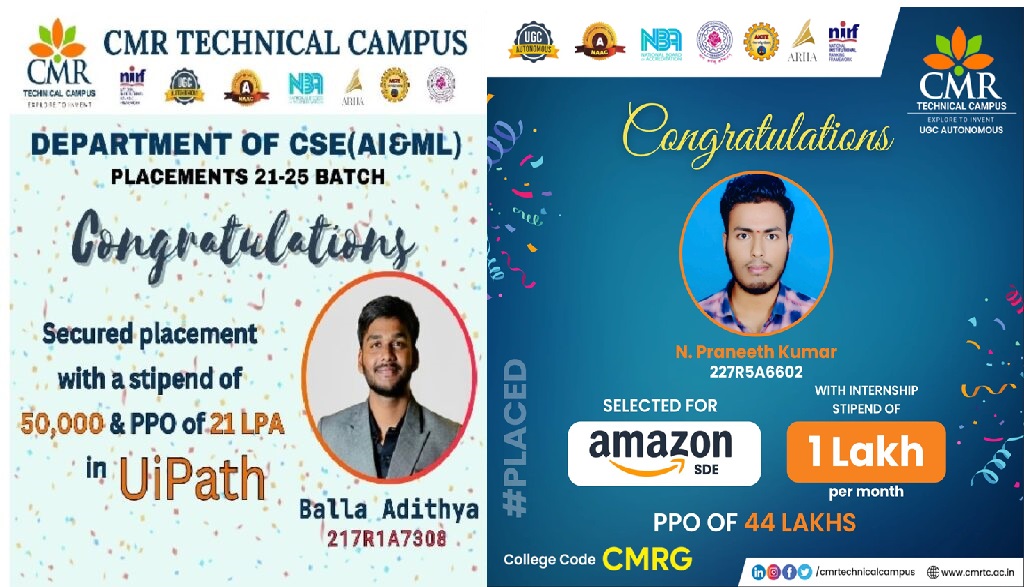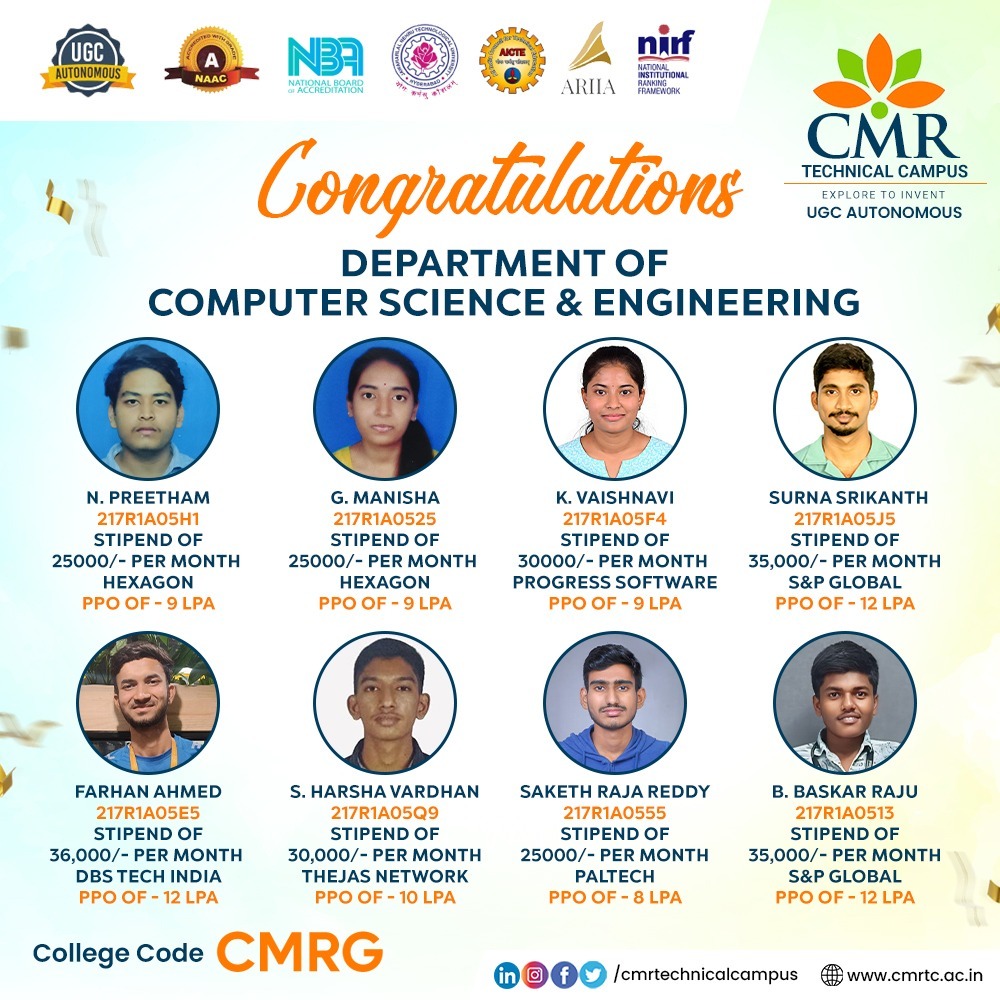About the Department:
Department of Electronics and Communication Engineering in CMRTC is popularly known as ‘Branch of Consistency’. Consistency in all perspectives. In the current world scenario of Digitalization, Media & Communication, 5G Technologies and many more advancements in technologies related to automation, an ECE Graduate plays an important role in building of Nation though Science & Technology. The skills acquired by the students of ECE has landed them in many reputed companies like Mentor Graphics, L&T metro, DSP, Bosch, TCS, Hyundai, etc.. The experienced faculty are the driving force of the department. The Department offers M.Tech in Embedded Systems with an intake of 18.
Latest News
-
-
- Department E-Magazine – 2024 – 2025
- Department E-Magazine – 2023 – 2024
- Department E-Magazine – 2022 – 2023
- Department E-Magazine – 2021 – 2022.
- Department E-Magazine – 2020 – 2021.
- Department E-Magazine – 2019 – 2020.
- Department E-Magazine – 2018 – 2019.
- Department E-Magazine – 2017 – 2018.
- Department E-Magazine – 2016 – 2017.
- Department E-Magazine – 2015 – 2016.
Few achievements of the department are:
- Department is accredited twice by National Board of Accreditation [NBA], New Delhi.
- 25 Patents filed by the Department till date.
- Over 150 Papers published in reputed Journals.
- Established 03 Research Centres: 1. Centres for VLSI & Embedded System Design Centres for Signal & Image processing 3. Centre for advanced Communication System
- Signed MoUs with more than 15 Companies.
- Won 1st prize in Robotics Competion held by IIT Hyderabad, BITs Hyderabad.
- More than 2000 students are facilitated with Internship in companies like HAL, NRSC, BDL, NFC, DRDL, BHEL, ECIL, etc.
- Received funding from government bodies to a tune of 1 crore.
- Industrial Visits to Satellite launch station SreeHarikota, NRSC Shadnagar, Door Darshan Kendra, Ramanthapur, Air force Station, Hakimpet, Hyderabad Radio Station, L&T Metro Signalling and Control station, Nagole and many more places.
- Highest package of 11 lacks in Microsoft.
- Ongoing Consultancy work worth of 16 Lakhs.
- Over 400 students cleared the NPTEL certified Course with Elite Rating.
- Equipment worth 43.5 L from National Instrument laboratory under DST- FIST Scheme
- Established 03 Research Centres: 1. Centres for VLSI & Embedded System Design Centres for Signal & Image processing 3. Centre for advanced Communication System
-




 https://vidwan.inflibnet.ac.in//profile/
https://vidwan.inflibnet.ac.in//profile/



